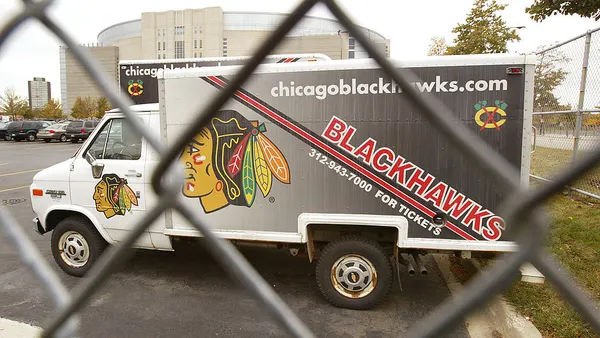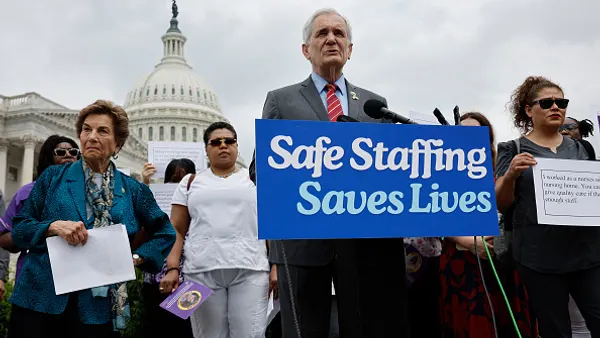Editor's note: Katie Clarey is a regular freelancer with HR Dive. Her column, Back to Basics, began three years ago, when she started covering employment law. If you're new to HR (or just need a little refresher), follow along as she speaks with legal experts, peruses federal guidance and lays out the basics of federal employment law. Feel free to send tips, questions and feedback to [email protected].
Imagine an employee, Krishna, recently joined a furniture manufacturer as a human resources associate. On her first day, Krishna toured the facilities with her boss around noon. She observed that a cluster of floor workers munched on chips and sandwiches as they sat at their machines.
Krishna got back to her desk and took out her own lunch. As she ate, she wondered about the workers. She thought she remembered hearing that morning that floor workers were paid an hourly wage and that most took an hour-long, unpaid break in the company cafeteria for lunch.
Krishna hesitated to call out a potential problem on her first day. But she was sure she learned in a recent training that employers must pay employees for time they spent eating if they were working, too. She couldn't remember, however, which law mandated that rule. And was she sure it applied in this setting?
To answer Krishna's (hypothetical) questions, I reached out to Lindsey K. Self, an associate in the labor and employment practice group at Eastman & Smith. She ran through the basics of work breaks and how the Fair Labor Standards Act — the federal law that deals with compensation issues like minimum wage and overtime — treats them.
Breaks: You don't have to do them, but you have to do them right
The first thing employers need to know is that the FLSA does not require them to provide breaks or meal periods. It's important for employers to note, however, that some states and localities have set up laws that say otherwise.
The FLSA is concrete in what it does require: "Federal and state law requires employees to be compensated for all work hours," Self said in an email.
Federal law considers short breaks to be compensable time. So if Krishna's company lets its hourly crew take 20 minutes for coffee every few hours, it has to pay them for that time.
The FLSA takes a different view on meal breaks. Meal breaks usually last at least 30 minutes, and employers aren't required to pay for that time. But here's the catch: employees must be completely relieved from their duties during that time, Self said.
The problem with desk lunch
Employers must pay workers for the time they spend working, Self said. This rule sounds simple, but it leads to some complicated questions about meal breaks and what counts as true work.
Self brought up an example: "If an hourly supervisor is required to carry their radio and respond to calls during their meal break the employee may need to be compensated for that break time."
Where employees eat can help employers determine whether to pay them for that time. "An office employee who is required to eat at his desk or a factory worker who is required to be at his machine is working while eating," according to DOL regulations. (Back to our hypothetical HR newbie: Krishna's facility tour must have reminded her of this information.)
Because employers must pay employees for all time worked — even when it coincides with eating time — employers should be careful to enforce any policies surrounding nonworking and unpaid break times consistently, Self said.
Halt auto deductions for working meals
Employers are permitted to automatically deduct a chunk of pay from workers' checks for unpaid mealtimes. But auto-deductions sometimes can lead to expensive class-action lawsuits if employers deduct pay for meal breaks employees spend working.
"Employers can generally auto-deduct pay for meal breaks so long as the employee actually takes the meal break," Self said. "When employers know or have reason to know that employees are not actually taking break time and instead are performing work, no auto deduction can be taken."
Employers should implement robust policies that require employees to communicate when they are performing work during assumed break time so supervisors can reverse the auto-deduction, Self said.
As for Krishna, the answers to her questions are clear. Hourly workers need to be paid for the time they spend doing their jobs — and that's still true when they're multitasking over a PB&J.














